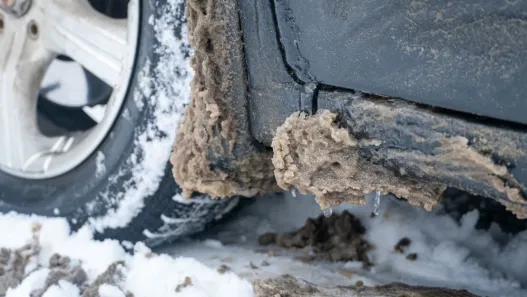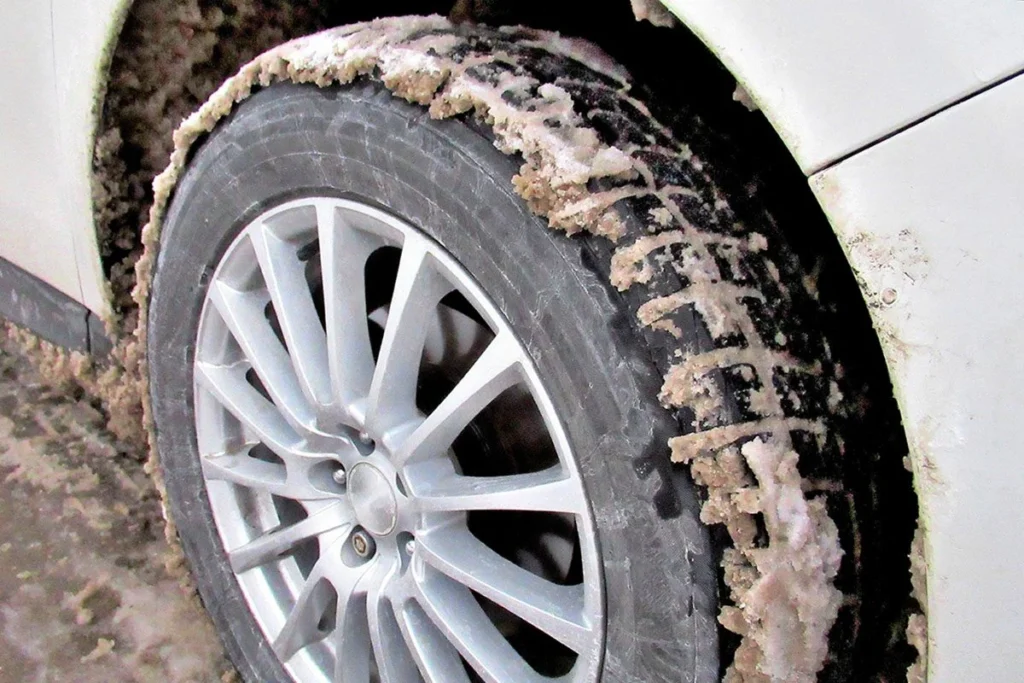Road salt is commonly used during winter to melt ice and snow on roads, but it can be harsh on cars. When road salt comes into contact with a vehicle, it can cause corrosion, particularly to metal components like the undercarriage, brake lines, and exhaust system.
The salt can accelerate rusting by creating a corrosive environment, especially when it mixes with water and remains on the vehicle for extended periods.

To protect your car from road salt damage, it’s a good idea to:
- Wash your car regularly, particularly the undercarriage, to remove salt buildup.
- Wax your car before winter to create a protective barrier.
- Consider getting a rustproofing treatment for added protection.
- Drive carefully when roads are salted, and avoid parking in areas where salt accumulates.
Taking these steps can help minimize the long-term damage caused by road salt exposure.
Road salt can have several negative effects on your car, primarily through corrosion and damage to various components:

- Rust and Corrosion: Salt accelerates the corrosion of metal parts, especially the undercarriage, frame, suspension, and exhaust system. When salt comes into contact with metal, it forms a corrosive solution that speeds up the oxidation process, leading to rust over time.
- Brake System Damage: Salt can get into your brake components, especially if they’re exposed to it through the wheel wells. It can cause rust on the brake lines, rotors, and calipers, reducing the efficiency of your braking system and possibly leading to costly repairs.
- Paint Damage: Salt can chip away at the protective coatings on your car’s paint, causing small, unseen nicks where corrosion can begin. If salt is left on the body for too long, it can dull the paint and promote rust in vulnerable areas.
- Suspension and Steering Issues: Salt can infiltrate the moving parts of the suspension and steering systems, potentially causing wear and tear, or, over time, seizing of the parts. This could lead to reduced handling performance and costly repairs.
- Windshield and Wiper Wear: Salt and grime can coat the windshield and accumulate on the wipers, causing abrasions and wearing down the rubber of the wiper blades. This reduces visibility and can lead to the need for more frequent wiper replacements.
To protect your car, it’s recommended to wash it regularly during winter, especially the undercarriage, and apply a protective coating like undercoating or rustproofing if you live in an area with heavy salt use.
Contact Doylestown Auto Repair at 267-279-9477 or visit our website at www.doylestownautoshop.com to schedule an appointment to have your car serviced.